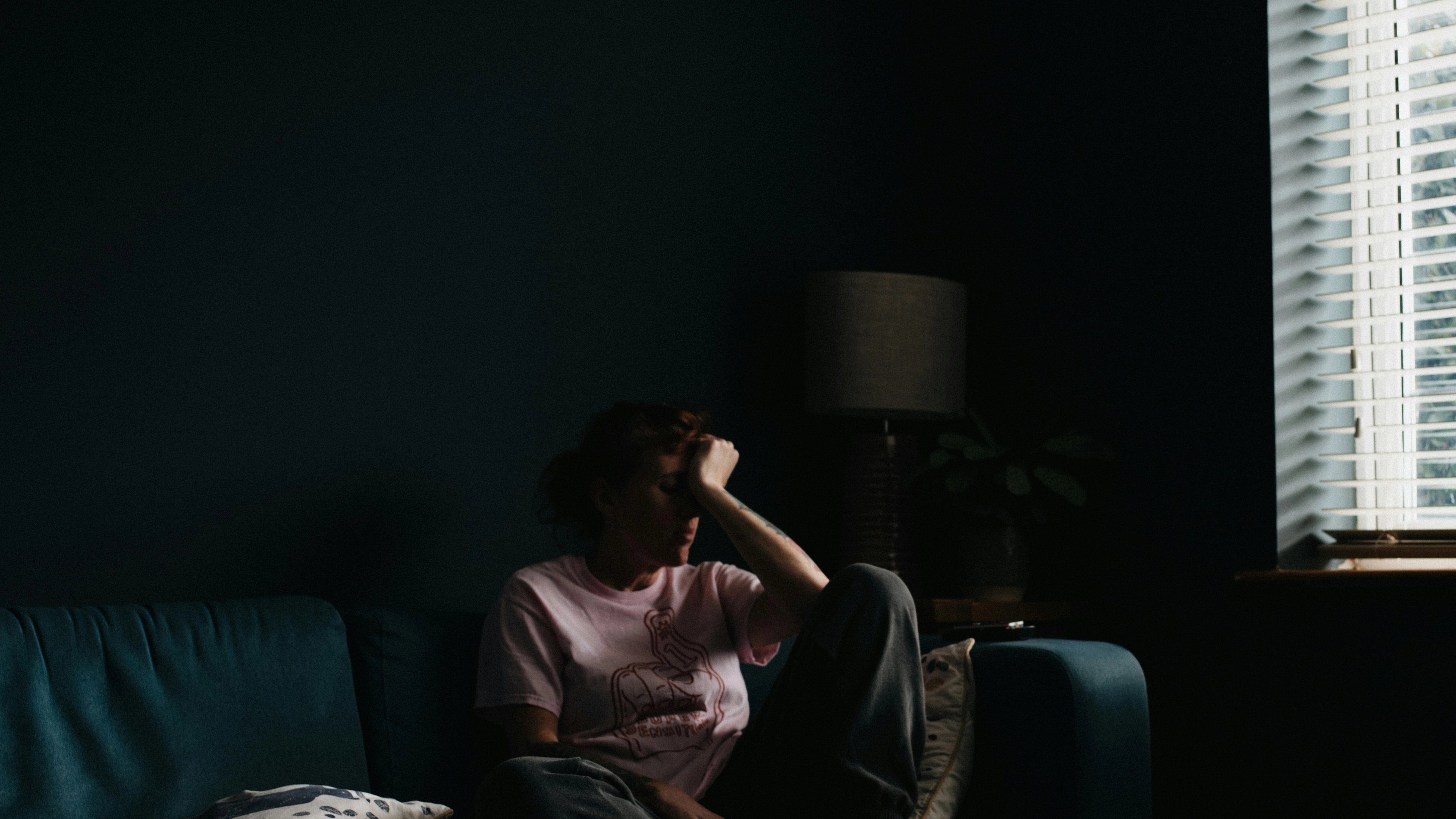
Insomnia is more than just a bad night’s sleep—it’s a common sleep disorder that can significantly impact your quality of life. Characterized by difficulty falling asleep, staying asleep, or both, despite having the opportunity to do so, insomnia can leave you feeling exhausted, irritable, and unable to function at your best during the day. But what exactly is insomnia, and why does it happen? In this article, we’ll explore the definition, causes, symptoms, and types of insomnia, as well as the various treatment options available. We’ll also provide you with practical, cost-free, evidence-based tips to help you improve your sleep length and efficiency.
What is Insomnia?
Insomnia is a sleep disorder where individuals experience persistent difficulty with sleep initiation, duration, consolidation, or quality, despite having adequate opportunity and circumstances for sleep. This difficulty often leads to daytime impairments, such as fatigue, irritability, difficulty concentrating, and even mood disturbances like depression or anxiety. Insomnia can be acute, lasting from days to weeks, often triggered by stress or life changes, or chronic, persisting for months or even years.
It’s surprisingly common—estimates suggest that between 10% and 30% of adults experience insomnia at any given time, with up to 50% experiencing it over the course of a year (Sleep Foundation). It’s more prevalent in women and older adults, but it can affect anyone, regardless of age or background. Understanding insomnia is crucial because it’s not just about feeling tired; it’s a condition that can have serious consequences for your physical and mental health if left unaddressed, potentially increasing risks for conditions like high blood pressure and depression (WebMD).
Causes of Insomnia
Insomnia can stem from a variety of factors, which are often categorized as primary (no underlying condition) or secondary (caused by another health issue). Here are some of the most common causes:
- Psychological Factors: Stress, anxiety, depression, and other mental health disorders are among the most common triggers. These can create a cycle where worry about not sleeping makes it even harder to fall asleep.
- Medical Conditions: Chronic pain, heart failure, hyperthyroidism, heartburn, restless leg syndrome, and sleep apnea are just a few examples of conditions that can disrupt sleep. Menopause can also contribute, as hormonal changes often lead to sleep disturbances (NHLBI).
- Lifestyle Factors: Irregular sleep schedules, shift work, jet lag, and poor sleep hygiene (like using screens before bed) can all interfere with your ability to sleep. Even something as simple as an uncomfortable bedroom environment can play a role.
- Substances: Caffeine, nicotine, alcohol, and certain medications can disrupt sleep patterns. For example, caffeine can stay in your system for hours, while alcohol might help you fall asleep initially but often leads to fragmented sleep later in the night.
- Genetics: Research suggests that genetics play a role in insomnia, with heritability estimates of about 38% in men and 59% in women. Certain genes, like the MEIS1 gene, have been linked to sleep disorders.
Understanding the root cause of your insomnia is key to finding the right treatment, as it can be either a standalone issue or a symptom of something else.
Symptoms of Insomnia
The symptoms of insomnia can vary but generally fall into two categories: nighttime symptoms and daytime symptoms. Nighttime symptoms include:
- Difficulty falling asleep
- Waking up during the night and struggling to fall back asleep
- Waking up too early in the morning
- Feeling unrested despite having slept
Daytime symptoms, which often result from poor sleep, can include:
- Daytime sleepiness or fatigue
- Low energy levels
- Irritability or mood swings
- Difficulty concentrating or focusing
- Memory problems
- Increased errors or accidents
- Ongoing worry about sleep
These symptoms can significantly impact your daily life, affecting your work, relationships, and overall well-being. If you’re experiencing these regularly, it’s worth seeking help (Mayo Clinic).
Types of Insomnia
Insomnia isn’t a one-size-fits-all condition—it can be classified based on its duration and cause:
- Transient Insomnia: This lasts for a few days to a week and is often triggered by temporary stressors, such as travel or a change in environment.
- Acute Insomnia: Lasts from one to several weeks and is typically linked to a specific event, like a major life change or illness.
- Chronic Insomnia: Persists for more than a month and can be either primary (no underlying cause) or secondary (caused by another condition, such as depression or chronic pain).
Additionally, insomnia can be categorized by its specific sleep pattern:
- Sleep Onset Insomnia: Difficulty falling asleep, often linked to anxiety or stress.
- Sleep Maintenance Insomnia: Difficulty staying asleep, often due to conditions like restless leg syndrome or sleep apnea.
- Early Morning Awakening: Waking up too early and being unable to fall back asleep, which is sometimes associated with depression.
Understanding the type of insomnia you’re dealing with can help guide treatment (Healthline).
Treatments for Insomnia
Treating insomnia involves addressing both the underlying causes and the symptoms. The good news is that there are effective treatments available, ranging from lifestyle changes to therapy and, in some cases, medication.
Non-Pharmacological Treatments
- Cognitive Behavioral Therapy for Insomnia (CBT-I): This is the first-line treatment recommended by experts. CBT-I is a structured program that helps you identify and replace thoughts and behaviors that cause or worsen sleep problems with habits that promote sound sleep. It’s often as effective as sleep medications but has longer-lasting effects and no side effects (NHLBI).
- Sleep Hygiene Education: Learning about habits that promote better sleep, such as maintaining a regular sleep schedule, creating a restful environment, and avoiding stimulants like caffeine and nicotine close to bedtime.
- Stimulus Control Therapy: This involves associating your bed with sleep and sex only. If you can’t fall asleep after 20 minutes, you get out of bed and do something relaxing until you feel sleepy.
- Sleep Restriction: Limiting the time you spend in bed to increase your sleep efficiency over time.
- Relaxation Techniques: Practices like progressive muscle relaxation, deep breathing, and mindfulness meditation can help reduce anxiety and prepare your mind for sleep.
Pharmacological Treatments
Medications can be helpful for short-term relief, but they’re generally not recommended for long-term use due to risks like dependency and side effects. Common options include:
- Benzodiazepines and Non-Benzodiazepine Hypnotics (Z-drugs): These help with sleep onset but should only be used for a few weeks.
- Melatonin Receptor Agonists: Drugs like ramelteon can help with sleep onset.
- Orexin Receptor Antagonists: Newer medications like suvorexant target the brain’s sleep-wake system.
- Antidepressants and Antihistamines: Sometimes used off-label for sleep, though evidence varies.
It’s important to work with a healthcare provider to determine if medication is right for you, as they should only be used under careful supervision (Mayo Clinic).
Alternative Approaches
Some people turn to alternative remedies like valerian, lavender, or acupuncture, but the evidence for their effectiveness is limited and inconsistent. Always consult a healthcare provider before trying these options to ensure they’re safe for you.
Cost-Free Tips to Improve Sleep Length and Efficiency
While professional treatments like CBT-I are highly effective, there are also plenty of cost-free, evidence-based strategies you can implement to improve your sleep. These tips are grounded in scientific research and can make a significant difference in your sleep quality:
Tip Description Why It Works Stick to a Sleep Schedule Go to bed and wake up at the same time every day, even on weekends. Regulates your body’s internal clock, making it easier to fall asleep and wake up naturally (NHLBI). Create a Restful Environment Ensure your bedroom is dark, quiet, and cool. Use earplugs, an eye mask, or a white noise machine if needed. Minimizes distractions and promotes a sleep-friendly environment. Limit Screen Time Before Bed Avoid phones, tablets, and computers at least an hour before bedtime. Blue light from screens suppresses melatonin, a hormone that regulates sleep (Sleep Foundation). Watch Your Diet Avoid heavy meals, caffeine, and alcohol close to bedtime. These can disrupt sleep patterns and reduce sleep quality. Exercise Regularly Engage in physical activity, but finish at least a few hours before bedtime. Exercise promotes deeper sleep and helps regulate your sleep-wake cycle. Manage Stress Practice relaxation techniques like deep breathing, meditation, or yoga. Reduces anxiety, which can interfere with falling asleep. Limit Naps Keep naps short (20-30 minutes) and early in the afternoon. Long or late naps can make it harder to fall asleep at night. Get Out of Bed if You Can’t Sleep If you’re awake after 20 minutes, do something relaxing until sleepy. Breaks the association between your bed and frustration, reinforcing it as a place for sleep. Use Your Bed Only for Sleep and Sex Avoid working, eating, or watching TV in bed. Strengthens the mental link between your bed and sleep. Try a Warm Bath or Shower Take one before bed to help you relax. The drop in body temperature post-bath can signal your body to sleep.
By incorporating these habits into your daily routine, you can significantly improve your sleep length and efficiency without spending a dime.
Conclusion
Insomnia is a complex condition that affects millions of people, but it’s also highly treatable. Whether you’re dealing with acute or chronic insomnia, understanding its causes, symptoms, and types is the first step toward finding relief. From lifestyle changes and CBT-I to medications when necessary, there are many ways to manage insomnia effectively. And remember, even small, cost-free changes to your daily routine can make a big difference in your sleep quality.
If your sleep problems persist despite trying these strategies, don’t hesitate to consult a healthcare provider. They can help identify any underlying conditions and guide you toward the best treatment plan for your needs. With the right approach, restful, rejuvenating sleep is within reach.
Emily Rodriguez
Editorial team member at Sleep Now

